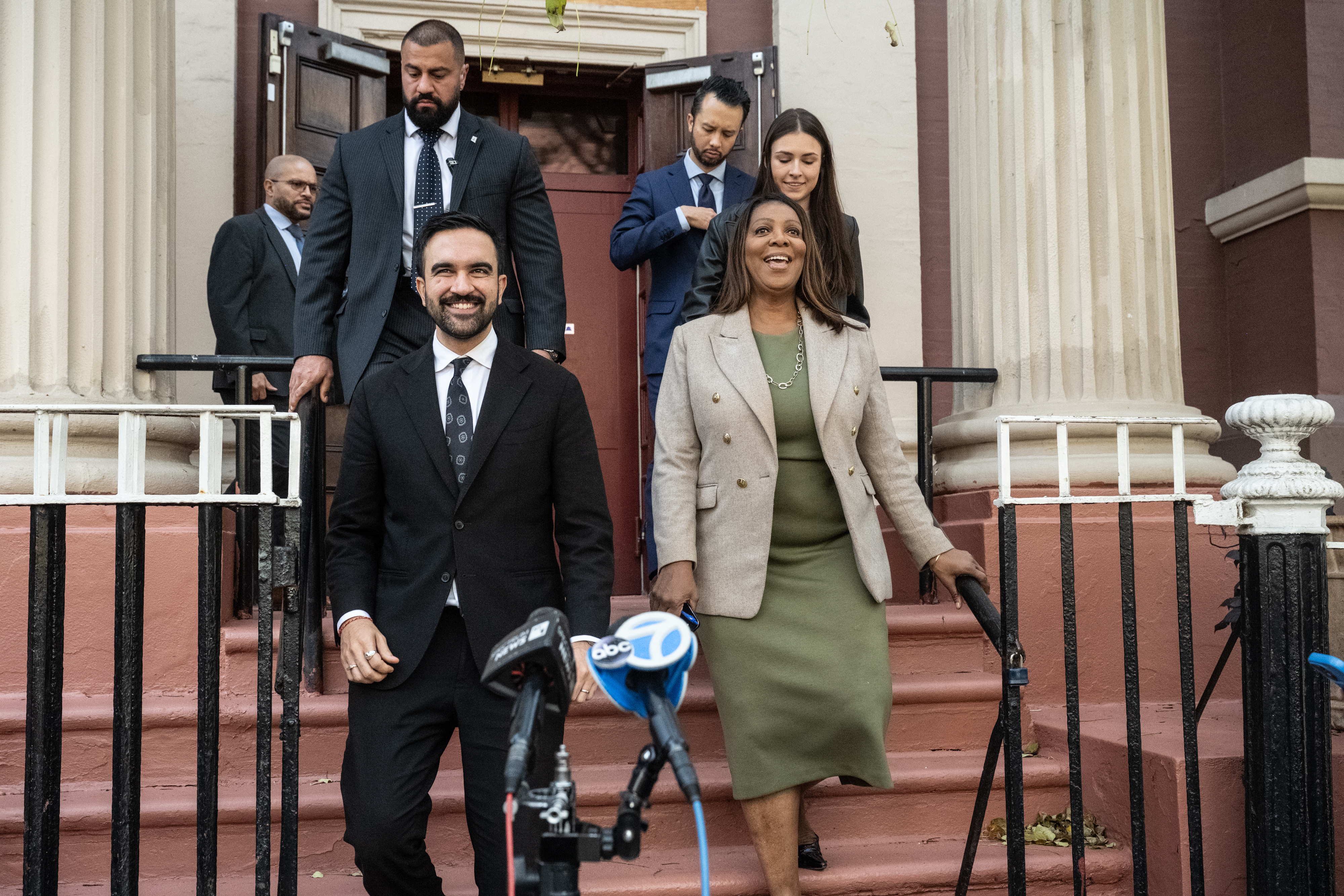
A Tumultuous Final Stretch in the New York City Mayoral Race
As the final days of the New York City mayoral race unfold, Democratic nominee Zohran Mamdani is making a strong push to secure support from key demographics, particularly within the Black and Latino communities. This effort has drawn attention for its potential to shift the balance of power in the city.
Mamdani recently joined Rev. Al Sharpton in East Harlem, a neighborhood with a significant Black and Latino population. Sharpton, who was once a close ally of former Governor Andrew Cuomo, used the opportunity to publicly criticize Cuomo’s campaign tactics. He specifically called out the use of “ugly Islamophobia” as a strategy to undermine Mamdani, emphasizing that such rhetoric is not only divisive but also harmful.
In addition to his appearance with Sharpton, Mamdani attended a church service in Brooklyn alongside House Minority Leader Hakeem Jeffries and New York Attorney General Letitia James. Both Jeffries and James hold considerable influence over Black voters in the city, making their endorsements significant for Mamdani’s campaign.
Perhaps one of the most notable developments came when Mamdani spoke on the phone with Barack Obama, the first and only Black president of the United States. According to reports, Obama offered to serve as a sounding board should Mamdani win the election. This connection highlights the broader significance of Mamdani's candidacy, especially given that he would be the city’s first Muslim mayor if elected.
Sharpton took the opportunity to address the issue of Islamophobia directly, stating that it is unacceptable to paint every Muslim as a terrorist. He urged unity among voters, saying, “If you can't get a vote on your record, don't play us against each other.” His remarks were met with applause, indicating strong support for Mamdani’s message.
The race has been marked by intense division, with both candidates accusing each other of exacerbating tensions. Mamdani, a democratic socialist, has gained traction among younger voters through his focus on affordability and economic justice. However, his progressive policies have raised concerns among moderate Democrats and the city’s wealthier residents, who fear that his agenda could be exploited by Republicans in upcoming elections.
Cuomo has targeted these dynamics, highlighting Mamdani’s relative inexperience and his past criticisms of Israel. In doing so, he has also faced criticism for stoking fears about Islamophobia. Recently, Cuomo has been seen campaigning with far-right figures, including a City Council member who claimed “jihad is coming to NYC” if Mamdani wins. These associations have further fueled controversy around his campaign.
Despite these challenges, Mamdani continues to gain momentum, particularly among Black voters. Cuomo, who trails in most polls, needs to secure this demographic to close the gap. He has been crisscrossing the city’s outer boroughs in an attempt to regain support, but community leaders are increasingly aligning with Mamdani.
During a recent event in Southeast Queens, Cuomo criticized Mamdani for being “divisive and offensive” throughout the campaign. This statement comes amid ongoing scrutiny of his own record, which has drawn accusations of misconduct and ethical lapses.
Cuomo has also attempted to attract Republican voters by embracing those who have labeled Mamdani as an antisemite and a jihadist. However, his efforts have not gone unnoticed, with Sharpton pointing out that Cuomo has not been present at recent rallies organized by his National Action Network.
Mamdani has continued to focus on the city’s affordability crisis, using his platform to call out what he sees as divisive tactics from the Cuomo campaign. He expressed concern over the growing sense of dismay among New Yorkers, noting that the city’s values seem to be under threat.
After his visit to East Harlem, Mamdani made his way to Brooklyn, where he participated in a service at the Hanson Place Seventh-day Adventist Church. There, he joined forces with Attorney General Letitia James and House Minority Leader Hakeem Jeffries. Jeffries, who took time to endorse Mamdani, emphasized the importance of ensuring that the next mayor of New York City is successful for all communities.
As the race enters its final stretch, the stakes are high for both candidates and the city they seek to lead. The outcome will not only determine the future of New York City but also shape the political landscape for years to come.

Post a Comment